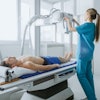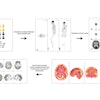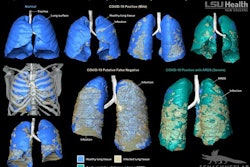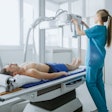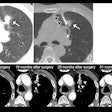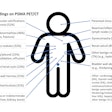Dear AuntMinnie Member,
Statins have been one of the big success stories in public health when it comes to preventing mortality from heart disease. But what impact do the drugs actually have on coronary plaque, a known risk factor for cardiac events?
A new study out of the Netherlands sheds some light on the question. Researchers used cardiac CT angiography (CTA) scans in patients undergoing statin treatment to show how the therapy remodeled coronary plaque, such as by changing its volume and density.
In other news in our CT Community, researchers from Hong Kong used artificial intelligence (AI) to analyze CT and pathology images in patients with oral squamous cell carcinoma. AI evaluation of CT was also found useful for assessing sarcopenia, while a CT-based radiomics model helped clinicians predict response to neoadjuvant chemotherapy.
Get these stories and more in our CT Community.
SPECT for breast cancer
SPECT isn't the most commonly used imaging modality for breast cancer, but it is carving out a role. In fact, researchers from Russia recently demonstrated their work on a new SPECT radiotracer that can differentiate between cancers that are positive or negative for the human epidermal growth factor receptor 2 (HER2) protein, which can be a sign of cancer aggressiveness.
Also, a group from Germany recently published research indicating that PET radiotracers that focus on detecting tau in the brain may be more effective in predicting cognitive decline from Alzheimer's disease than radiotracers that target beta amyloid.
More content like this can be found in our Molecular Imaging Community.
Breast imaging costs
Finally, it's become a growing trend in healthcare for patients to shoulder more of the costs of their care. That's even occurring in vital services like breast screening: Researchers from the University of Washington found that out-of-pocket costs for many breast imaging services have almost doubled since 2010.
